If somebody told you that just off the coast of Britain, in the North Sea, exists a micro-nation unrecognized by any sovereign state in the world but has survived for half a century, would you believe it?
Although this sounds like a joke, the Principality of Sealand is anything but. The territory, established in 1967, occupies a World War II platform located some 7.5 miles off the coast of Suffolk. It contains a territory of 480 square yards, hosted on concrete pillars that hold the platform 60 feet above the sea level.
It has its own flag, a national anthem, currency, post stamps, government–and a power struggle that has threatened the current ruling dynasty since 1978.
The founder of that dynasty, Pete Roy Bates, emerged in the era of pirate radio stations that used the protection of international waters to uninterruptedly broadcast popular music and radio shows without legal permission in the 1960s.
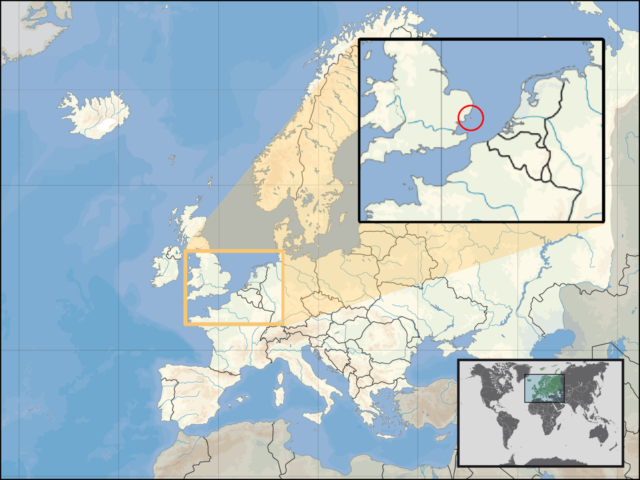
It was all part of the arrival of rock & roll, which was deemed inappropriate by the official British radio services, despite the fact that the music was causing a craze of epic proportions among youth.
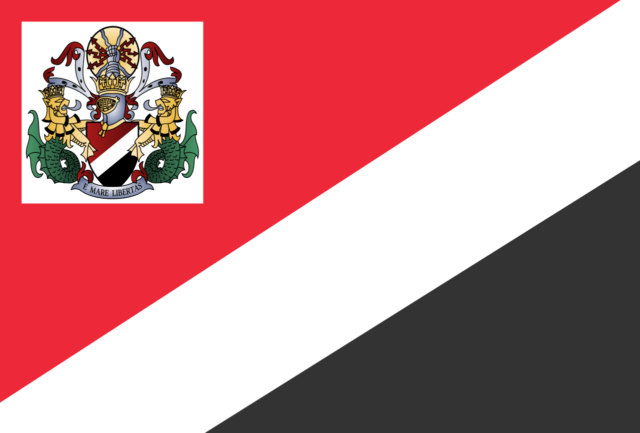
Pirate radios, based on ships roaming the international waters off the British Isles, started to gain a large number of listeners and were becoming a sort of a cult institution. Most notable among them were Radio Free London and Radio Caroline.
Bates, a former major in the British Army, also decided to “ride the wave” of these freedom frequencies that defied the stiff-necked bureaucrats within the BBC with his very own Radio Essex. He stationed himself on one of the Maunsell Forts by expelling its previous lodgers who were broadcasting under the name Wonderful Radio London.
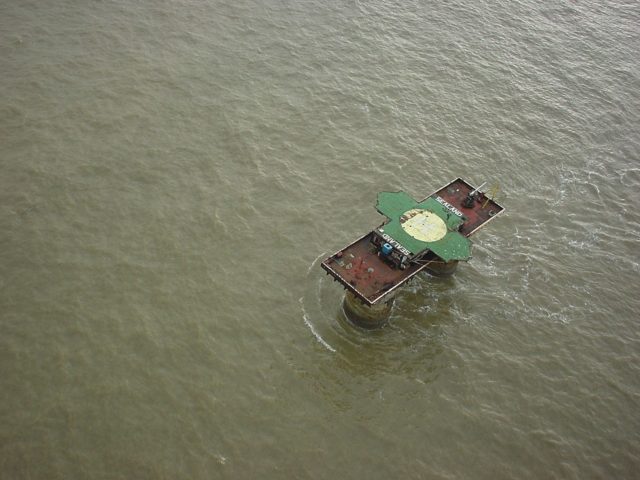
For those not familiar with what a Maunsel Fort is, here is a short history: In 1943 platforms were built in the North Sea to serve as anti-aircraft defense stations operated by the British Army in case of bombings, or potential German invasion. After the war, these massive forts in the middle of the sea turned into unwanted relics of wartime, and they were decommissioned in the 1950s.
That is, until one of them, called Roughs Tower, became a point of interest for various pirate radio broadcasters, including Bates. Contrary to a ship that’s mobile, the platform could constitute a state. At least that’s what Roy Bates thought. Once he realized the potential of his island made of concrete and steel, Roy took it a step further.
On the 2nd of September 1967, he proclaimed the Principality of Sealand, with himself as the Prince. His wife, Joan Bates, was the Princess of Sealand, while his son, Michael, became the rightful heir of the micro-state. Essex Radio, on the other hand, never began its broadcast.

The proclamation prompted the decision by the British government to destroy all remaining Maunsell Forts in order to avoid similar situations from happening. The Principality of Sealand was spared from eviction by the UK, but internal quarrels began to plague the miniature realm.
In 1978, Alexander Achenbach, a German businessman and then a Prime Minister of the unrecognized state of Sealand, tried to conduct a coup d’etat. It might sound ridiculous, but Achenbach was apparently very serious. He hired a band of Dutch and German mercenaries armed with assault rifles and charged the platform with a speedboat, jet skis, and helicopters.
Achenbach was actually an associate of Bates’ who proposed to invest in Sealand so they could turn the platform-state into a casino outside of government reach. Once the deal went sour, he decided to claim the throne of Sealand for himself. Talk about a James Bond plot twist.
At the time, the 26-year-old Michael Bates was left alone to guard the Principality while his father and the rest of the family were in England. The murky German businessman stormed the platform and took Michael hostage.
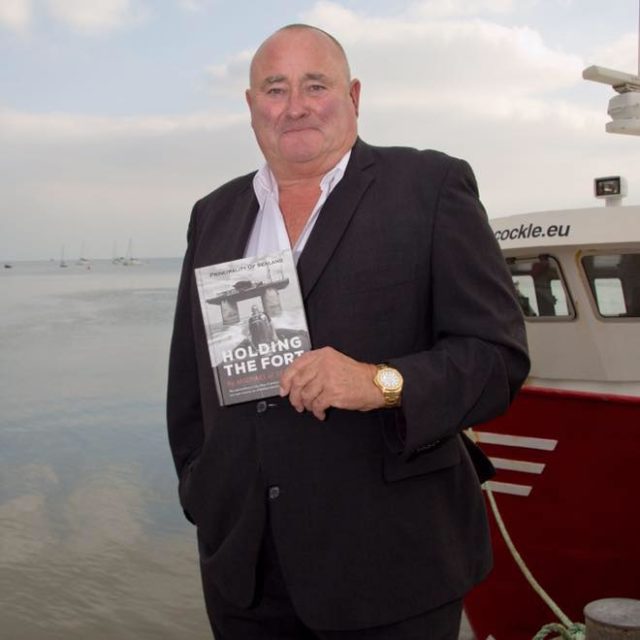
Once he learned of this ordeal, Roy Bates, like a hero from a fable, hurried to his son’s rescue. Michael was flown to the Netherlands after four days and subsequently released from his captivity.
With his son out of danger, the Prince of Sealand had the green light to launch a counter-attack. Together with his armed followers, he retook Sealand from the usurpers in a daring helicopter raid.
There were no casualties, but now the self-proclaimed Prince held the cards by imprisoning Gernot Putz, a Sealand passport holder, a German citizen, and the lawyer of Achenbach. By the power invested in Bates, Putz was charged guilty of treason and sentenced to life imprisonment on the platform.
The next party to get involved was the West German government. They sent a diplomatic representative to negotiate the release of Putz, which gave Bates the opportunity to once again exploit a legal loophole to his advantage.

He pulled Putz’s sentence but proclaimed Sealand was recognized by West Germany because of their diplomatic actions. The Germans, of course, denied such interpretation, but it did give Bates yet another argument that Sealand is, in fact, a legal state in the constitutive sense, which demands a country be internationally recognized in order to uphold its sovereignty.
After the crisis was over, Achenbach founded the rebel government of Sealand in Germany, an obscure organization that claimed the right to rule over the disputed platform in the North Sea. The government in exile, as they tend to see themselves, continues to jeopardize Sealand’s statehood, under the leadership of Achenbach’s successor, Johannes Seiger.
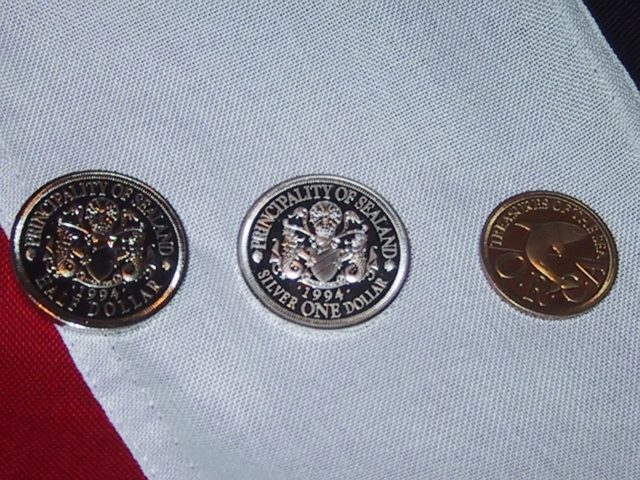
Today, the Principality of Sealand technically exists, but since 1987 it is officially in British territorial waters. Furthermore, the United Nations denied island status to the platform in 1994 by claiming:
Artificial islands, installations, and structures do not possess the status of islands. They have no territorial sea of their own, and their presence does not affect the delimitation of the territorial sea, the exclusive economic zone or the continental shelf.
Roy and Joan passed away in 2012 and 2016 respectively, while their son Michael currently holds the title of ruler of the unrecognized micro-state―a function he’s been fulfilling since 1999. Michael’s son James acts as Prince Royal, preparing to continue the Bates dynasty into future generations.
What is fascinating in this amusing territorial dispute is the fact that Sealand has managed to produce a viable dynasty that continues to rule the pirate-state to this day, selling titles of nobility and hosting various activities, most notable of them being the World Egg Throwing Championship.
